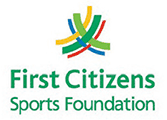Background
During the past two (2) decades Trinidad and Tobago has experienced the introduction of academic programmes in sports education at the tertiary and higher education levels. This is in keeping with developments in other parts of the region and the world. Sport has become not only an important arena for employment, business and investment but also for academic research, scholarly endeavour and undergraduate and graduate teaching. What is also noteworthy is that sports education has emerged as a multi-disciplinary and interdisciplinary field, with courses and programmes spanning virtually all disciplinary and cross-disciplinary specializations. At The University of the West Indies (UWI) the first academic programme – Certificate in the Art and Science of Coaching was introduced as a collaborative endeavour of the Department of Management Studies and The Sport and Physical Education Centre (SPEC) in 2002 before becoming a collaborative endeavour between the School of Education and SPEC in 2004; a relationship that still exists today. Since then, degree programmes (undergraduate and graduate) have been added in Sports Management while a special Bachelor of Education (B.Ed) Programme in Physical Education started in 2007 and graduated its cohort in 2010. Programmes in Sport Science and Sport Psychology are currently being considered as well as the continuation of the B.Ed programme.
Sports Education was also introduced at the University of Trinidad and Tobago (UTT) on August 25th 2007 with the launch of its Academy of Sports and Leisure Studies (ASLS). UTT recognized the value of fitness and health to students’ achievement of academic excellence as well as its contribution to the development of sport as outlined in the National Sports Policy of Trinidad and Tobago. The accomplishment of the ASLS goals is facilitated through three specialized Units: the High Performance Unit, the Academic Unit and the Students University Campuses and Communities Education and Sport Services (SUCCESS) Unit. The High Performance Unit deals specifically with student-athletes that have been selected to develop their sporting abilities to compete at the National and / or International levels in their chosen sporting disciplines (i.e. Football, Cricket, Netball, Swimming, Boxing, Women’s Volleyball, Table Tennis, Chess, Rugby 7’s and Golf). The Academic Unit offers a Certificate in Sports Studies, a Bachelor in Sport Studies (with concentrations in Sport Pedagogy, Sport for Development, Sport Management and Exercise Science) and an Executive Master’s in Sport Management. The SUCCESS Unit provides sporting opportunities at all participation levels to develop a lifelong interest in sport and recreation within the university and the wider community (The University of Trinidad and Tobago. (n.d.). Index. In ASLS Home. Retrieved July 16, 2012).
These developments are increasingly important bearing in mind the pivotal role that sports plays in contemporary society and its effects on the economy. These programmes have however, often emerged in response to a specific demand, need or availability of funds and not always as an integrated response to the research, teaching and learning needs of sport stakeholders. A conference is therefore being organized to address this situation as it is an opportune time for careful consideration to be given to societal needs in the areas of research, scholarship and teaching and learning as we navigate the course ahead for Trinidad and Tobago and the Caribbean.
It is within this context that The UWI in collaboration with the First Citizens Sports Foundation proposes to host a three (3) day conference with the theme - “Towards Integrated Programmes of Sports Education at the Tertiary and Higher Education Levels in Trinidad and Tobago and the Caribbean.” The aim of this conference would be to:
- Contribute to knowledge and scholarship on sport in the Caribbean
- Lay the groundwork for the establishment of integrated academic programmes on sport in higher education
- Facilitate knowledge exchange (sharing of experiences)
- Review best practices of sport programmes in a higher education context (inclusive of Benchmarking)
- To develop a plan of action for future development of academic sports programmes and recommendations towards the implementation




